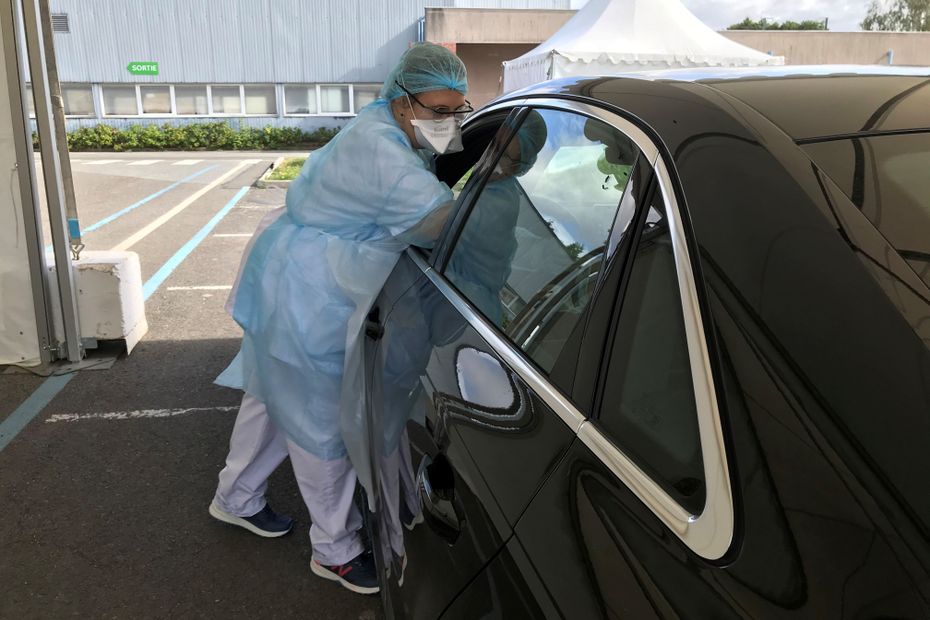Faced with the variant forms of Covid-19, English, South African and Brazilian, ARS Bretagne is strengthening its screening strategy. The goal: to detect more and intervene early (contact tracing, isolation) because of the risks of increased contagiousness of these variants.
–
ARS Bretagne has decided to strengthen its screening strategy due to the development of so-called “British”, “South African” or “Brazilian” variant forms on the national territory.. The health authorities will therefore detect more and intervene early by contact tracing and isolation of people, given the risks of increased contagiousness of the virus. Reinforced measures are planned for schools. As of February 8, the ARS identifies 36 clusters representing 110 cases of Covid-19 with variant in Brittany.
The generalized variant screening strategy
Any test (antigen and RT-PCR) giving a positive result must now be the subject of a screening RT-PCR, in order to determine whether it is contamination by a variant of the virus.
Since a few weeks, laboratories in the Brittany region are gradually deploying these RT-PCR tests, known as “variant screening” tests. This is why the number of grouped case situations (clusters) has grown and is changing day by day in our region.
More and more clusters in different types of establishments
36 clusters were counted in Brittany: 23 in Ille-et-Vilaine; 5 in Finistère; 4 in Morbihan; 4 in the Côtes d’Armor. This is mainly the “British” variant, but 6 cases of the “South African” or “Brazilian” variant were also detected within these clusters.
These grouped cases are found both in schools, health establishments, medico-social and businesses. 20 schools are concerned: 14 in Ille-et-Vilaine-3 in Finistère-2 in Côtes d’Armor-1 in Morbihan. Seven Ehpad: 5 in Ille-et-Vilaine-1 in the Côtes d’Armor-1 in Morbihan. Five health establishments: 3 in Ille-et -Vilaine; 1 in Morbihan. 1 in the Côtes d’Armor. And four companies: 2 in Ille-et-Vilaine-1 in Morbihan.
On this subject, the editorial staff recommends
–
Isolation from 7 to 10 days depending on the variant
For the patient with a variant the priority remains immediate isolation for 7 days and rapid identification of their contacts. The patient carrying a variant should be made aware of the risk of increased contagiousness and of the importance of particularly strict compliance with isolation and barrier procedures.
For the “Brazilian and South African” variants, the isolation period is increased to 10 days. Due to the increased contagiousness of these two variants, an isolation release test must be systematically performed.
7-day isolation of at-risk contacts as well
At-risk contacts of people carrying a variant must isolate themselves for 7 days and benefit from a PCR test, at J0, that is to say as soon as it is identified in order to immediately start contact-tracing operations if it is positive
Identified risk contacts are asked to inform themselves (contact-warning) the people with whom they have been in contact at risk since their last exposure to the virus. For these people, it is recommended to strengthen the application of barrier measures (wearing a mask with filtration greater than 90%, teleworking, voluntarily reducing social contacts during the following 7 days and finally carrying out a diagnostic test without delay at the 1st symptom) .
Reinforced measures for schools
As soon as a British variant is identified, a contact-tracing is carried out, with systematic eviction of positive cases, of students and staff at risk. A class closure measure is taken by the academic services in conjunction with the health and prefectural authorities.
If a child is a carrier of one of the two “Brazilian and South African” variant viruses, or if it is in contact with a parent infected with one of the two variants,closing of the class is automatically pronounced (administrative measure); all students and teachers in the class are immediately tested (for pupils, tests can be carried out from 6 years old); and following an investigation (ARS level 3 contact tracing), identified at-risk contacts are placed in quarantine and tested on D0 and D + 7 by RT-PCR; people not identified as a risk contact are not subject to quarantine.
–


